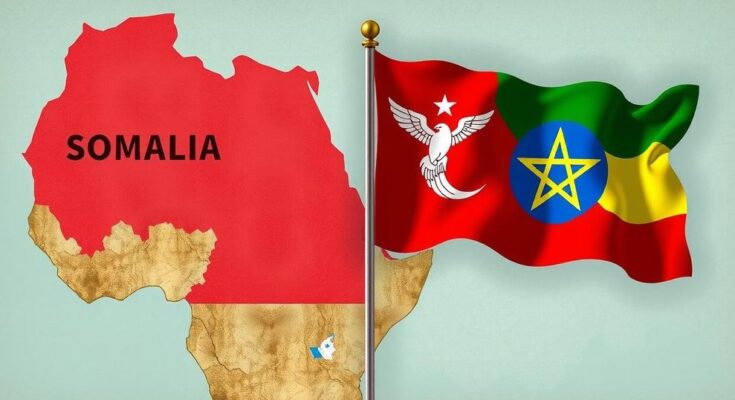Ethiopia and Somalia have reached a deal to resolve a year-long dispute through Turkish mediation. This agreement follows rising tensions after Ethiopia’s pact with Somaliland for maritime access, aimed at fostering regional stability. Experts express cautious optimism about the deal, highlighting the importance of sustained relations.
Ethiopia and Somalia have agreed to a significant resolution to their prolonged conflict, a process facilitated by Turkish President Recep Tayyip Erdogan. Tensions had escalated after Ethiopia secured an agreement with Somaliland, a self-declared state seeking independence from Somalia, to gain access to maritime routes. This deal aims to restore relations and foster regional stability in the Horn of Africa. Commentary from experts conveys a mix of optimism and caution regarding the sustainability of this newfound accord between the neighboring countries.
The longstanding rivalry between Ethiopia and Somalia has been a point of contention in East Africa, primarily surrounding territorial disputes and access to maritime resources. Ethiopia, a landlocked nation, has sought avenues to bolster its trade and economic growth through access to the sea. Somaliland’s quest for recognition has further complicated the dynamics, often reflecting broader regional ambitions. Diplomatic interventions, such as those from Turkey, illustrate the increasing role of external actors in mediating conflicts and fostering diplomatic ties within this geopolitically sensitive area.
The recent agreement between Ethiopia and Somalia, mediated by Turkey, represents a hopeful step towards resolving their year-long dispute. However, continuing vigilance will be necessary to ensure its success and maintain peace in the region. The international community will likely play a critical role in supporting the reconciliation efforts that emerge from this accord, aiming to stabilize the Horn of Africa.
Original Source: www.dw.com




